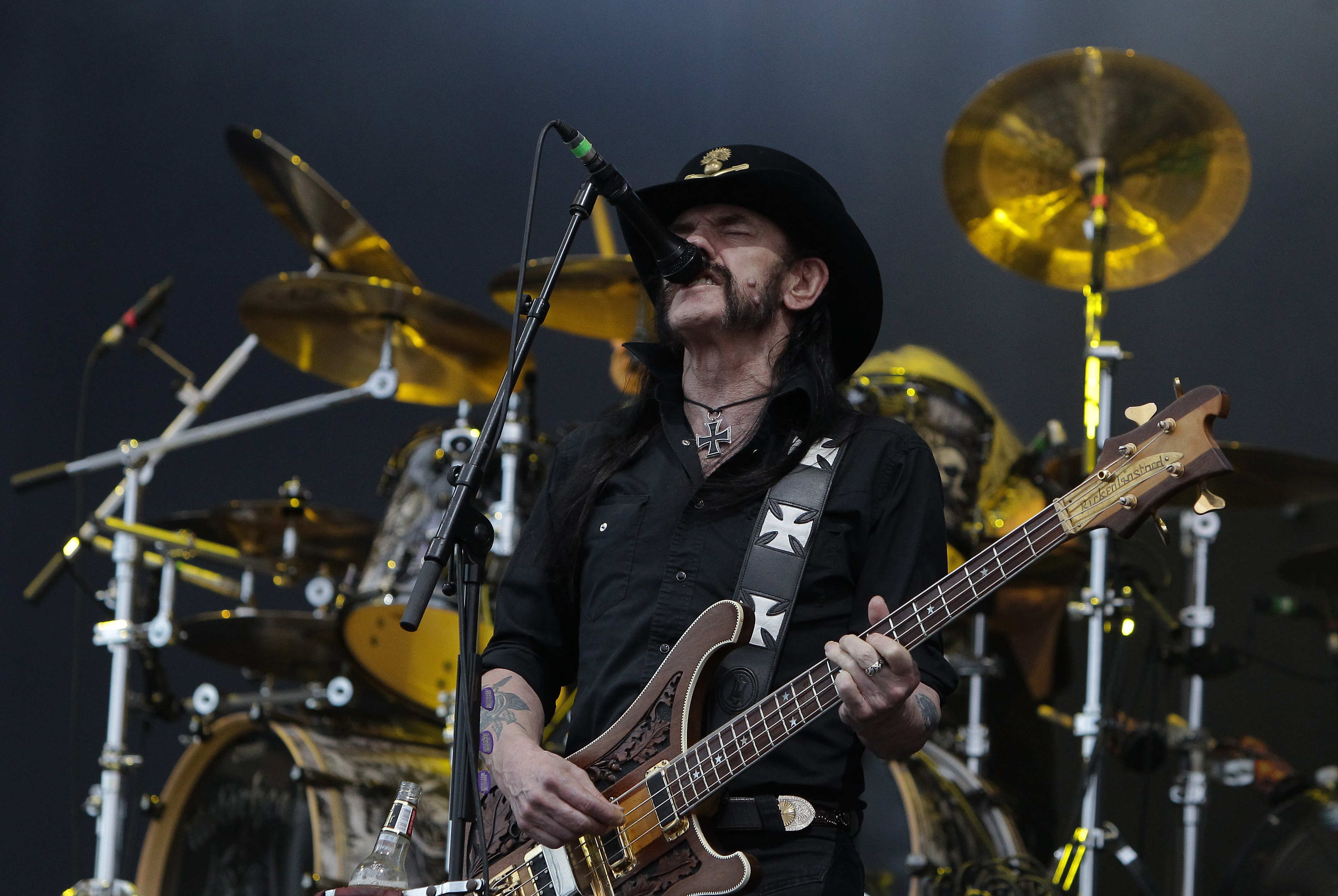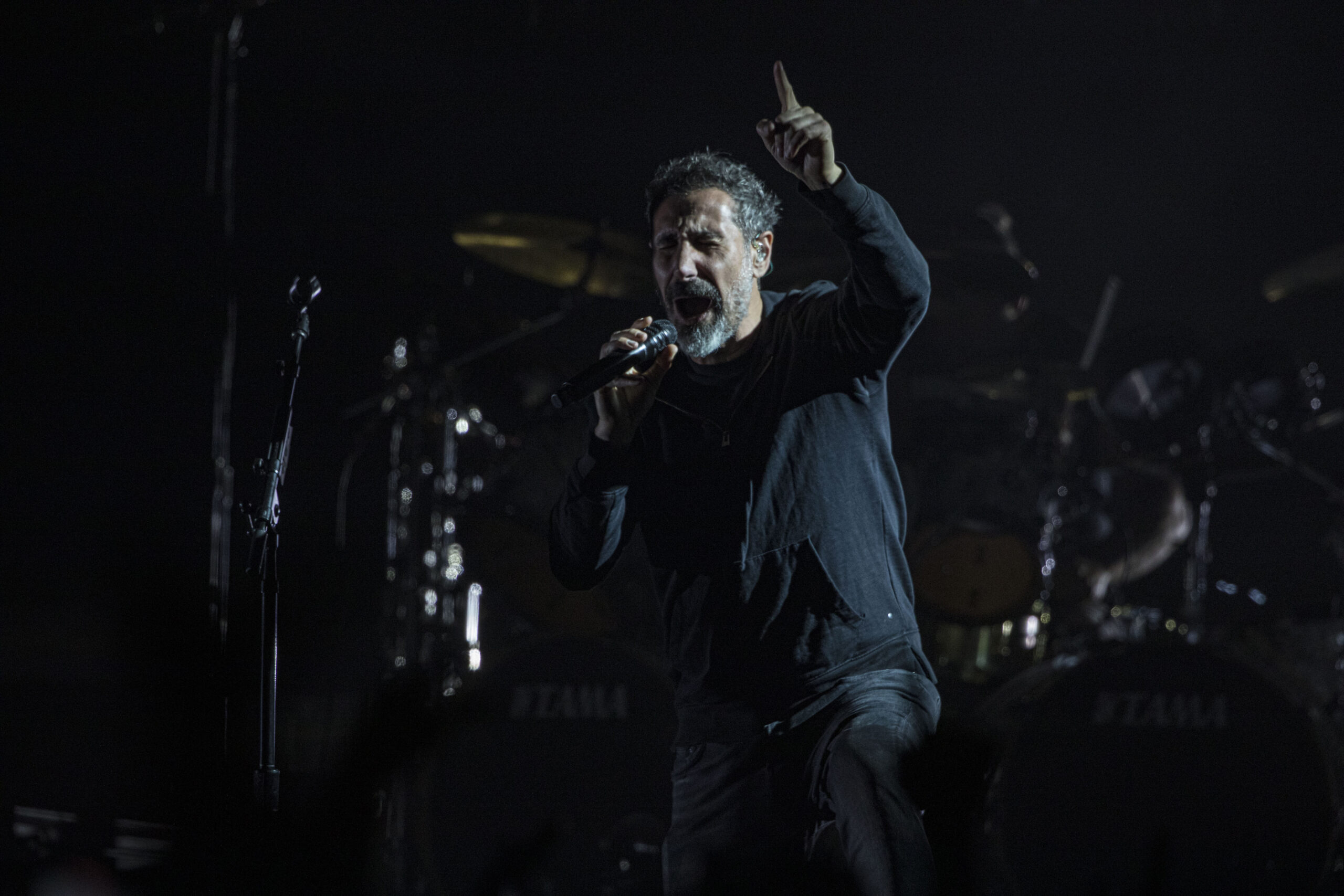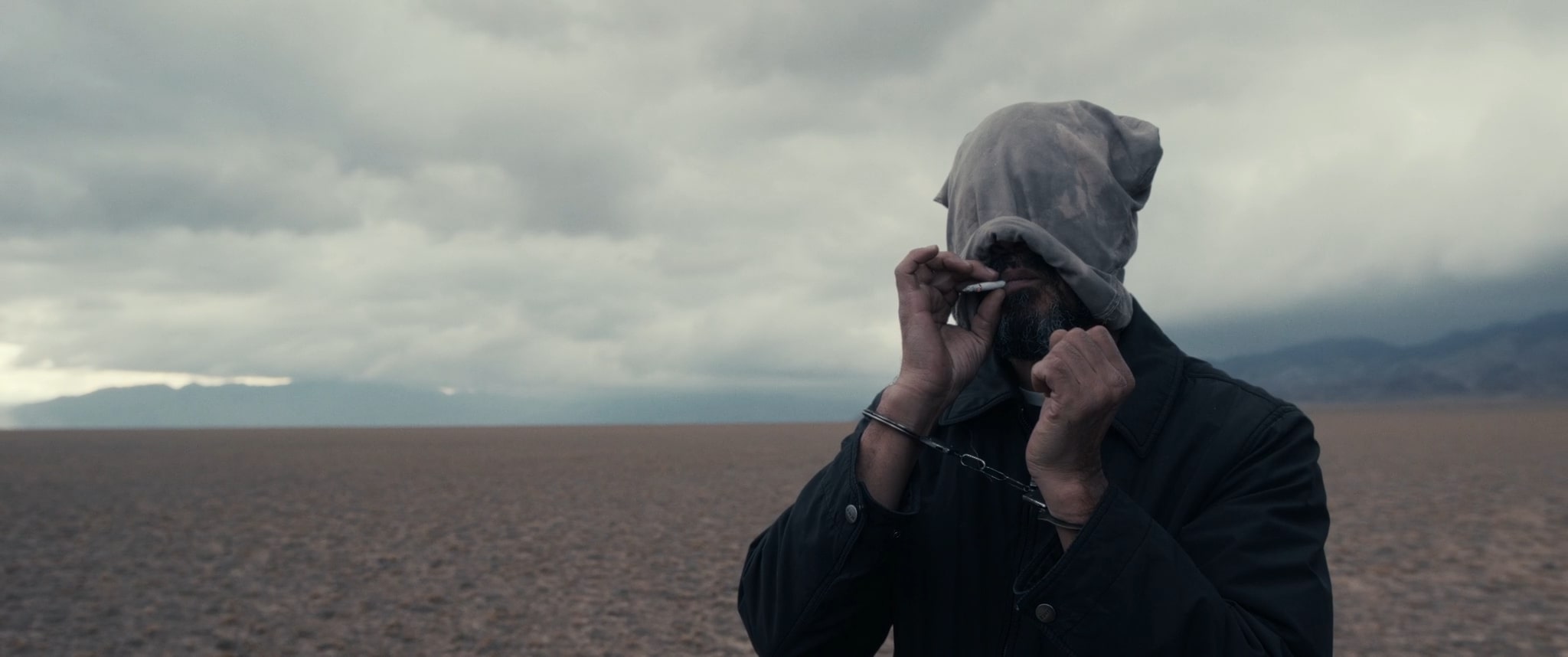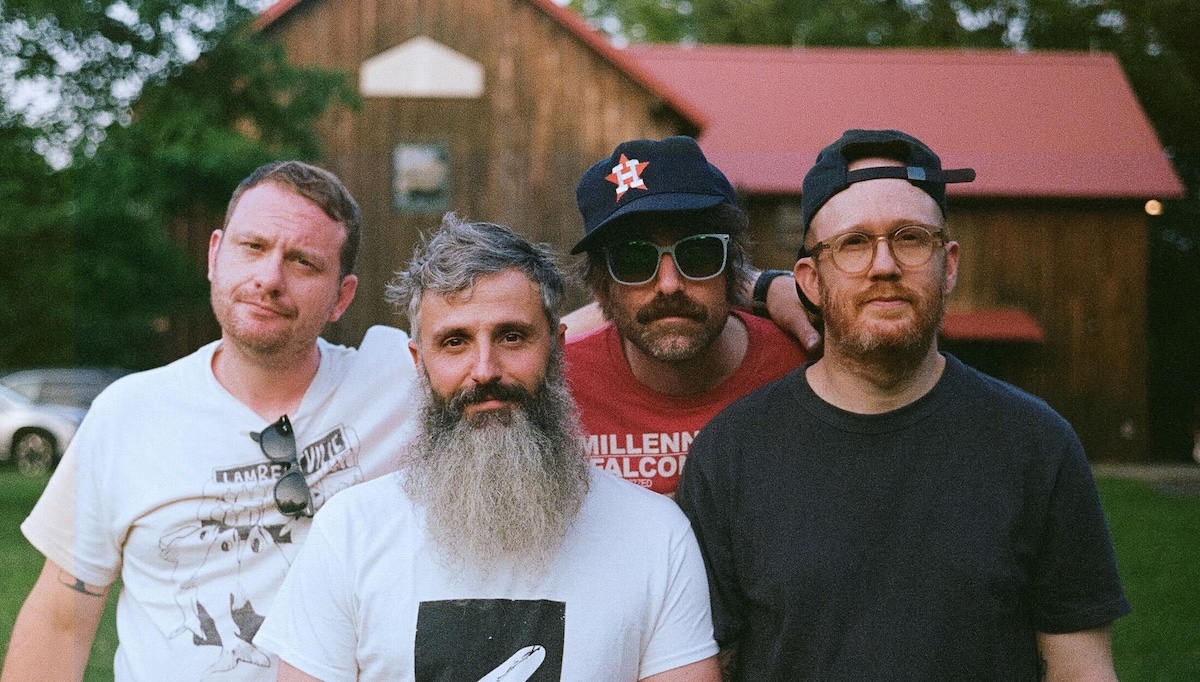
It’s hard to explain if you weren’t there. I was there, though. It was one of the few times that I was there for one of those things you had to be there for.
It was 2010-ish, in the steaming-hot basement of the First Unitarian Church of Philadelphia, a landmark venue for the city’s music scene, which had been growing in profile at the time. This is when it was happening here unlike anywhere else, we all thought. Some of the blogs even backed us up on that. It’s happened plenty of other places before and happened in many places after that, but right now, right here, it was happening in Philadelphia. And it was blowing my head off.
More from Spin:
- System Of A Down Set Sights On 2026 European Tour
- NEW WORLD ORDER
- Her Story: Debbie Gibson Chronicles the Ups and Downs of a Life Beyond Her Dreams
I had moved to Philly from the faraway land of Harrisburg, Pennsylvania. In the capital area, I fancied myself in the know. I figured by coming to Philly for college, I was just going where I belonged to meet people who were finally at my level. Making my natural next step. I knew the bands. I knew who was who. I knew the Wonder Years and the Menzingers and Dr. Dog. What uncharted waters could there be?
And then Algernon Cadwallader played at the church, and I realized I didn’t know shit. But everyone in that basement sure knew them. I was behind, and I needed to catch up.
At the time, the music was called “Twinkle Daddy.” You can probably still find some blogs or Reddit threads about it if you do a little digging. Bands like Algernon, Snowing, Glocca Morra. A particular strain of East Coast emo that borrowed heavily from the Midwest, because Algernon Cadwallader didn’t invent frenetic noodling with open tunings over harsh vocals, nor would they claim to, but there was a crop of young Philadelphians and punks the world over who felt like they rewired the first time they heard songs like “Serial Killer Status.”
That’s what happens with culture. Artists take influence from something in the past and put their own spin on things, a generation primed for it falls in love with it, and then, usually, the wave ends. Algernon Cadwallader and the bands around them were no different. 2008’s debut Some Kind of Cadwallader put them on the radar, and by the time 2011’s Parrot Flies came out they were a beloved cult favorite in a scene that was setting the pace for the rest of the genre.
And then they called it quits.
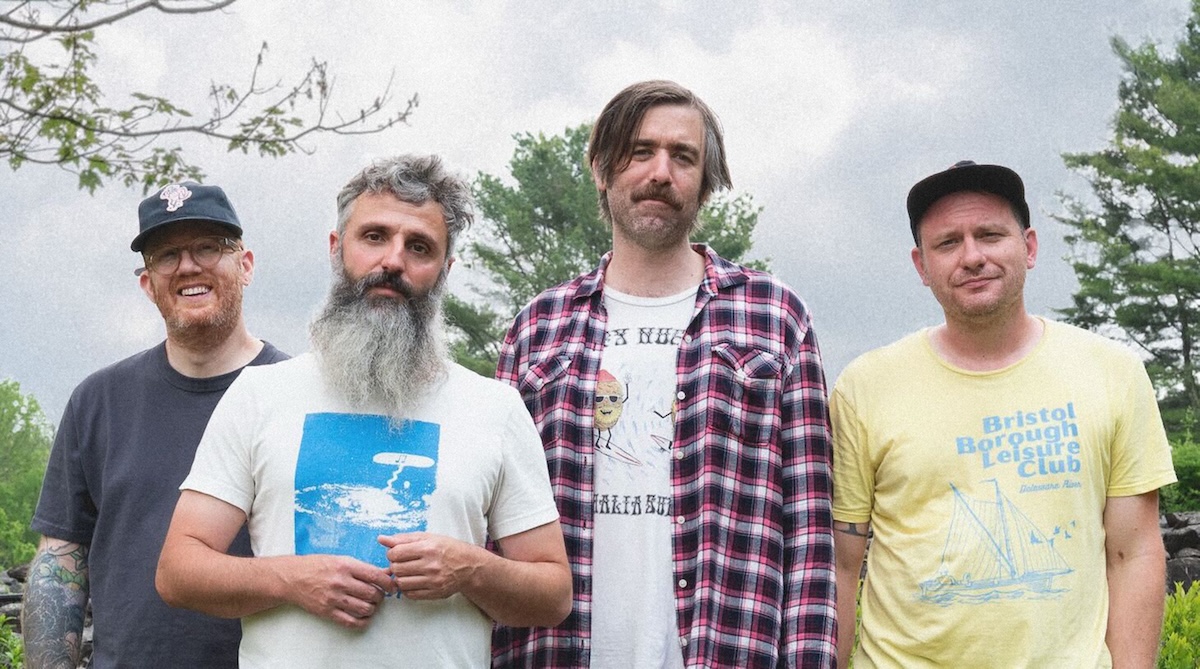
There wasn’t any big drama. No public falling out among the members or high profile label disputes. The band had run its course. The wave had crashed.
In the time since, new waves formed, the kids became adults, and the next batch of kids dusted off their own parents’ CDs from the early 2001s and reinvented those sounds. Philly gave way to places like Baltimore, Toronto, and Asheville as wellsprings of rock music subcultural dominance on the East Coast. And Algernon Cadwallader existed in conversations about the kind of sweaty nights of your youth that your back and knees can’t afford anymore.
And then they came back.
The thing about Algernon Cadwallader coming back is that it really was a total surprise from the outsider point of view. A one-off festival appearance seemed feasible, a reunion tour possible. We do live in an era of emo nostalgia carnivals. But a bona fide new album—with the original lineup of Peter Helmis on bass and vocals, Joe Reinhart, and Colin Mahony on guitars, and Nick Tazza on drums no less—didn’t seem like it was in the cards. And at no point during the reunion tour did they show their cards at all until suddenly there was a new single and new album announcement: September 16, 2025. Trying Not to Have a Thought on Saddle Creek Records.
“Nobody knew we had a new album until it was basically done,” says Reinhart, who spent his post-Algernon time playing guitar in Hop Along and producing records in his Philly studio, among other endeavors. “We had talked to some labels and stuff like that beforehand, but nobody knew until it was basically done. And at that point, we could look back on it and maybe assess how we felt about it if we wanted to. But it was pretty obvious for us that we were very happy for it and very ready for it to go out there for people to hear.”
“We 100% wanted to make it a surprise,” Helmis adds. “We love surprises, you know? There was just so much excitement around our reunion that really inspired us, too. I feel like that’s so awesome for us. The energy levels of the shows were, like … fucked up.”
Yeah, people missed you guys. And the ones who never got to see Algernon Cadwallader the first time around, only hearing stories from the shows from those who did, were pretty damn excited that the stars aligned for them.
And it turns out the way to get a defunct beloved band back together is to tell them it’s your birthday. Little life hack there for you.
“We had never stopped doing other projects and stuff, so it was always like, ‘We don’t need to rehash [Algernon Cadwallader],’ until we did, mid-pandemic,” Helmis says. “Our buddy Curtis asked if we wanted to play Fest in Gainesville. And we kind of gave him the usual, ‘I don’t think it’s time. We’re good, but thanks.’ And he just laid it on super thick, talking about how sick it would be and would mean a lot to him, and he told me it was going to be his 40th birthday.”
That birthday wish tipped it over the edge for the guys in the band, and the idea of a reunion became a reality. But they didn’t want to just be another band reunion on the eye chart that is the Fest poster, among plenty of other bands coming back for “one time only” shows or playing the album that you specifically want to hear. If they were coming back, they wanted to do a real tour. And touring meant rehearsing, which meant all getting together in the same place—no easy feat when members are spread across Philly, Portland, and Seattle. Part of growing up is accepting that your friends often move away, after all. The irony is that the band is still categorized under the almost useless catch-all genre marker of Midwest emo, despite being pretty firmly planted on either coast.
Rehearsing in the same room meant noodling around with new riffs and dusting off some old ones from the half-done pile from the past. Still, it felt more like a fun detour from the job at hand: preparing for a tour. No one was talking about a new album just yet.
“Once we started jamming it was just so much fun,” Helmis says. “We didn’t want to stop, but we were like, ‘Yeah, let’s get the songs that we’re gonna play live show-ready.’”
They were holed up in the woods of Pennsylvania and Washington, living together, scribbling down lyrics over dinner, hashing out riffs when inspiration struck and sharing it in real time rather than over FaceTime or a voice note.”
Things snapped into place the way they always had musically. For Reinhart specifically, he says it didn’t take any adjustment period to get back into this way of playing guitar with this band, since he had essentially learned how to play by playing with these guys. They were just returning to something like muscle memory.
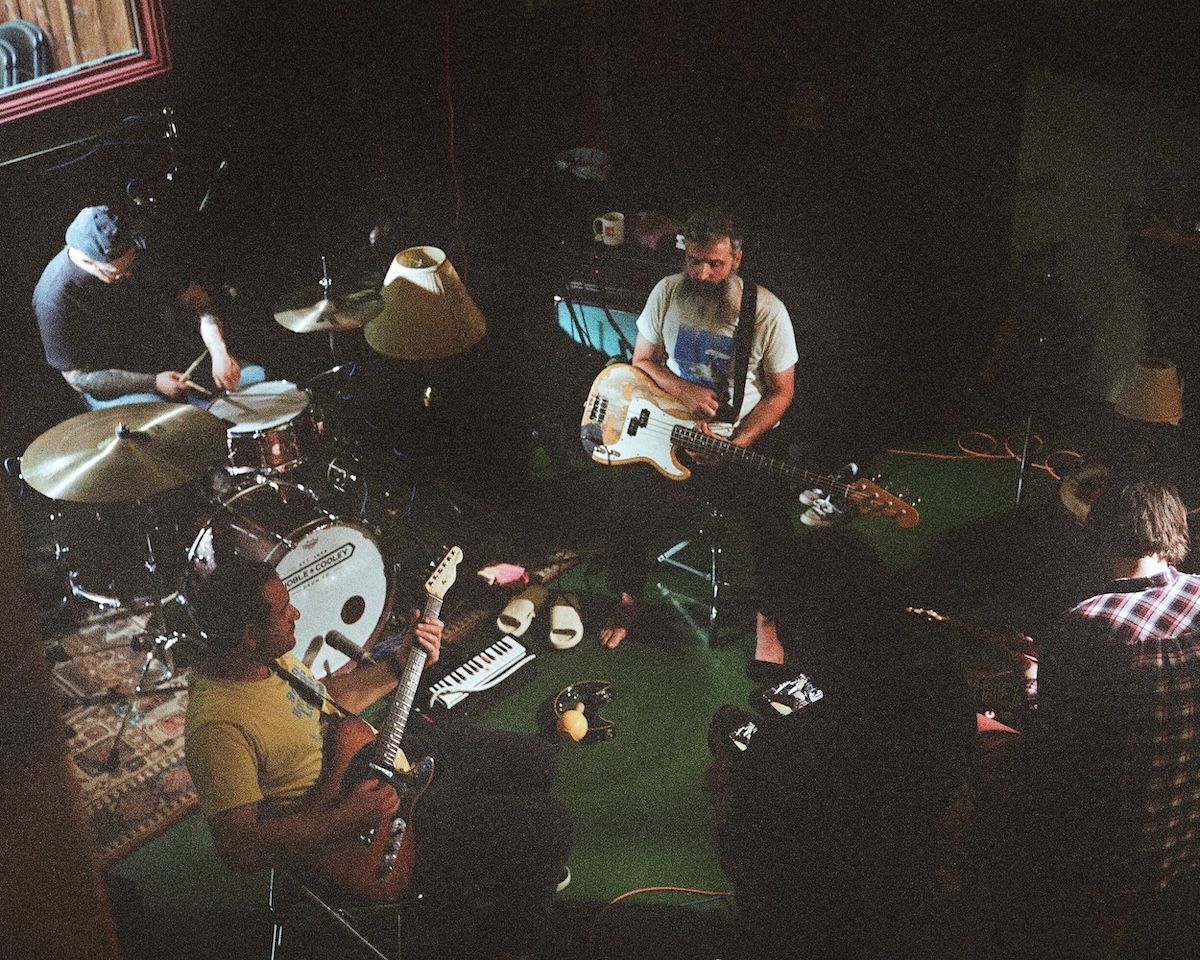
The biggest departure, though, was Helmis’s vocals and his lyrics. Helmis’s lyrics for Algernon Cadwallader’s first two albums were pushed to their limits. Cracking in a shriek that makes your own throat hurt just listening to it. A raw power that became a crucial element of the genre they had helped push to this level. Now, though, he’s not more reserved, but he’s not shredding his vocal chords with every delivery. He’s a little more deliberate, maybe. A little softer when you can hear his everyday timbre a little more.
From the lyrical standpoint, too, the younger Helmis wanted his songs to be more opaque, or more easy for a listener to project whatever meaning they wanted onto his words. On Trying Not to Have a Thought, Helmis is very much voicing his own thoughts and more literal in his writing. Part of that came from the fact that there was this new, younger crowd finding them for the first time, and he maybe wanted to connect with them on a level he hadn’t before. Maybe it was also just that between 2011 and now, he’s lived life and has greater perspective and more to draw from. He also has the long gray beard now, with a look primed to deliver wisdom to the youth.
“This time around, what was coming out of me lyrically was very specific, and it just seemed very fitting for, I don’t know, the times and the crowd we knew we were playing to, that we just wanted to have some kind of meaningful and direct and very clear message on top of the music,” Helmis says.
Nowhere on the album is this clearer than “Attn MOVE,” a story about the infamous MOVE bombing in Philadelphia, where in 1985 the city’s police force firebombed residential homes in an effort to evict the members of the black liberation organization MOVE. More than 60 houses burned down, 11 people were killed, and 250 were left homeless. It’s a brutal retelling of one of the city’s grimmest moments in its history led by its “crooked cop-turned mayor” over an otherwise bouncy instrumental. Sugar and medicine, etc.
Power and pride / were on the line / when they dropped the bomb / Philadelphia 1985
With a brutal bridge/outro that reminds us that, like the fun parts of a city’s history—its music waves and cultural touchstones—the bad parts also linger over it through the years and leave scars.
Some black clouds never go away / Just hover in place / And change their shape right in front of your face / This is America
The album opens with “Hawk,” a dedication to a childhood friend who started playing music with them as kids and since passed away.
There was already distance wide as the sky but I liked to know you were in it / Why did you have to die? / A broken wing that you couldn’t mend I wish I could’ve gave you medicine / How much of our lives did we spend side by side?
We joke that this is Algernon Cadwallader’s “grown up” album after breaking up while they were still young men, now back with proper vocal warmup techniques, but also a dedication to be more overt in their lyrical delivery and messaging.
Helmis once wanted people to be able to project whatever they wanted onto his lyrics so he stayed purposely vague. But now, telling his own personal stories and putting his emotions at the forefront in a more specific way, he might become even more relatable than he was the first time around when he endeared himself to a generation of kids who had never heard anything like what he was screaming at them.
Helmis says that every Algernon song needs a “monkey wrench” in the writing process. With all of the ways they’ve grown as people and musicians since 2011, Helmis says they’re better at structuring their punk songs and, by extension, better able to find places to surprise the listener and themselves by taking a left turn.
Trying Not to Have a Thought is perhaps the one where the surprise turns don’t give you as much of whiplash as Some Kind of Cadwallader or Parrot Flies, but they’re there. To Reinhart and Helmis, they wouldn’t truly be Algernon songs without them. They’re just maybe a little more refined now with age. That’s not to say Algernon is ready for their “An Evening With Algernon Cadwallader” seated shows, though.
The surprise now is maybe expecting a blow to the face and getting a soft pat on the head instead, with songs like “noitanitsarcorP,” where Helmis croons over what the guys in the band admit to be a “groove” rather than an onslaught.
Reinhart chimes in with his own interview question for his pal. I’ll allow it, though I would like to remind them that this is my show.
“I have a question, Pete. Is ‘Procrastination’ the first song you wrote because you were procrastinating writing the lyrics?”
Helmis admits that it was up there, and had been on the backburner for a long time before he dug it back up for the new album. And then he quite possibly summarizes their absence better than any lengthy article romanticizing the late 2000s and early 2010s emo boom of the Northeast ever could.
“Procrastination, you know?” he says. “You’re not actually putting stuff off, you’re giving yourself the most possible time to come up with ideas.”
To see our running list of the top 100 greatest rock stars of all time, click here.

